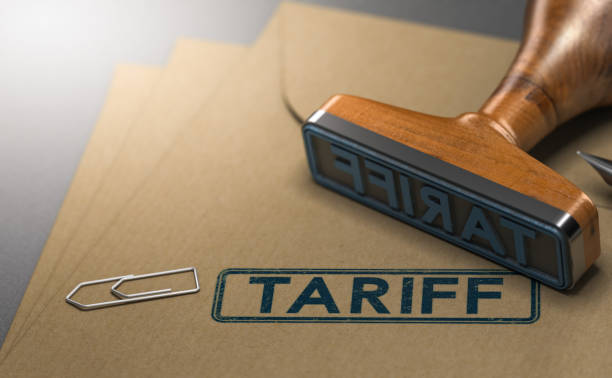
Mastering the complexities of tariffs is vital for building an agile and cost-effective supply chain. Understanding how tariffs work and their implications for businesses and customers empowers you to make informed decisions. In turn, your operations can adapt quickly and effectively to global economic uncertainties.
What are tariffs?
Tariffs are taxes that governments impose on imported goods. They serve several purposes, including protecting domestic industries from foreign competition, generating revenue, and sometimes retaliating against unfair trade practices. When a tariff is applied, it raises the cost of the imported product, influencing consumer purchasing decisions and impacting market dynamics.
Who pays tariffs?
Tariffs are charges imposed on goods entering a country, but the financial burden usually falls on you, the importer. That’s because the extra costs from tariffs are generally passed along the supply chain, resulting in higher prices for you and, ultimately, your customers. Therefore, you must consider these additional potential expenses when developing your procurement and pricing strategies.
Ripple effects on the supply chain
Tariffs can have widespread effects throughout the supply chain. Some of those effects include:
- Increased costs: Higher import taxes raise the cost of goods, reducing your profit margins by necessitating price increases for your customers. This effect is particularly damaging because if you absorb the costs, your profits are reduced; however, passing the cost on to your customers can reduce their purchasing power and result in less order volume.
- Supply chain disruptions: Tariffs may lead you to seek alternative suppliers or materials, which can cause delays and complicate your logistics operations.
- Market volatility: Fluctuating tariff policies create uncertainty, making forecasting costs and planning difficult.
Challenges in identifying and managing tariffs
Determining whether the materials you source are subject to tariffs can be complex due to multiple factors:
- Complex regulations: Tariff classifications and rates vary by country and product, requiring thorough research and an understanding of international trade laws.
- Evolving policies: Trade agreements and tariff rates can fluctuate, necessitating continuous monitoring to stay compliant and cost-effective.
- Accurate payment: Ensuring you’ve paid the correct tariff amount involves meticulous documentation and calculation, with errors potentially leading to fines or shipment delays.
How we can help
Partnering with us offers multiple advantages in managing tariffs, including:
- Expertise in compliance: We possess in-depth knowledge of international trade regulations, helping you navigate complex tariff classifications and ensure compliance.
- Cost optimization: By analyzing your supply chain, we can identify opportunities to minimize tariff expenses, such as sourcing from countries with favorable trade agreements or optimizing shipping routes.
- Proactive monitoring: Our Control Towers continuously monitor global trade developments, providing early warnings about economic changes that could impact your logistics, allowing for timely adjustments.
- Streamlined operations: With our team managing your logistics, you can focus on your core business activities and feel confident that your supply chain maximizes profit margins, retains customers, and complies with all tariff regulations.
Understanding how tariffs impact your supply chain is vital for maintaining your edge in today’s market. Together, we can tackle challenges head-on, help you reduce expenses, and unlock critical insights into global economic shifts.
Learn more
Check out our Services and Solutions portfolio to learn how we can help you predict, navigate, and overcome global economic uncertainties, challenges and changes to save you money and enhance your competitive edge. If you’re interested in partnering with us, visit our Contact page to get in touch.
